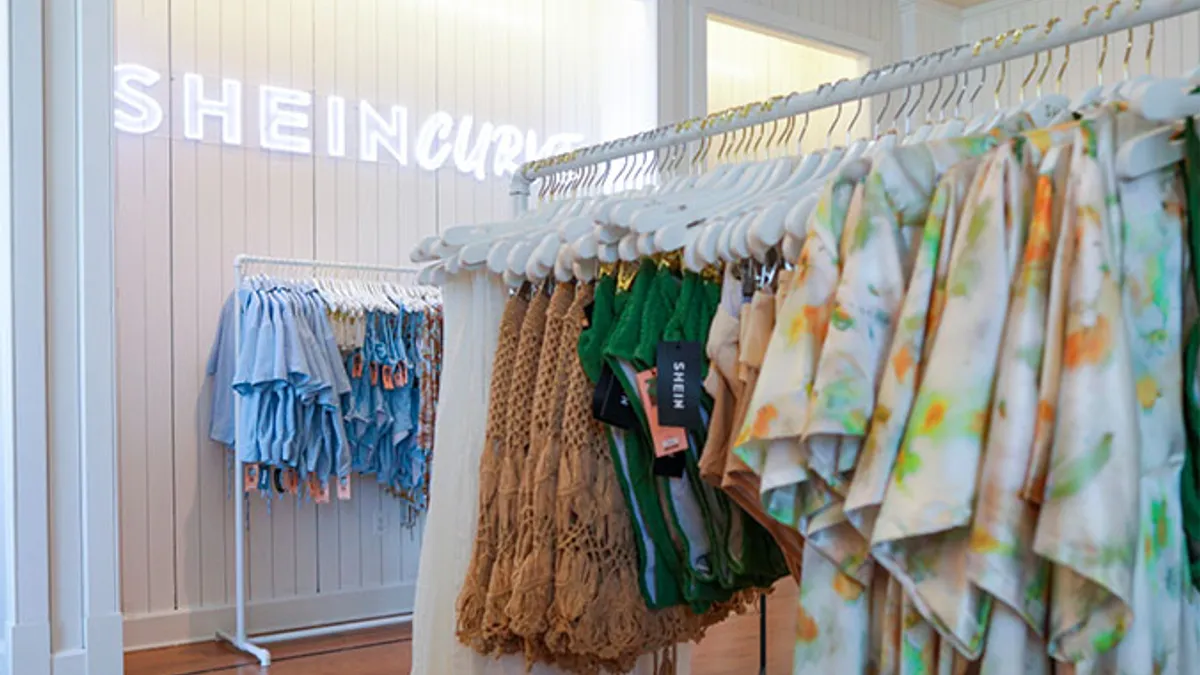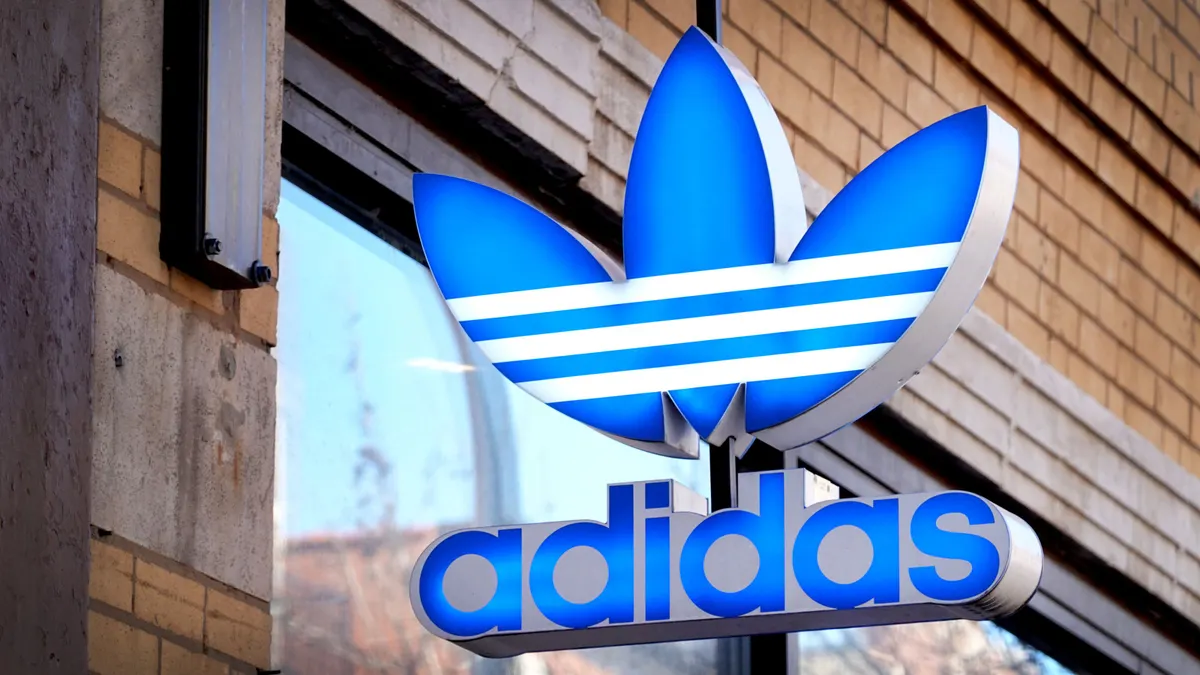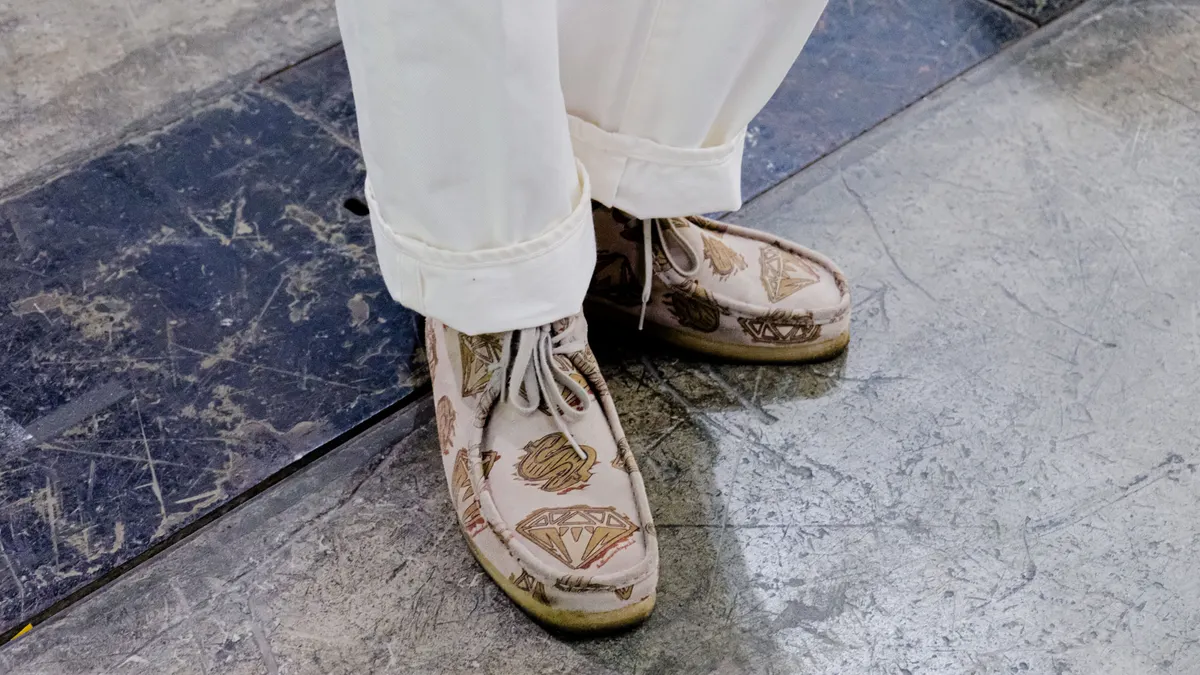Shein is ready to be taken seriously, and analysts say the fast fashion giant's reported initial public offering is part of its plan to get there.
While the company faces increased competition from discount players in the U.S. market, an IPO could be a bid to gain momentum and increase its relevance, according to multiple industry analysts.
The IPO move was reported by multiple media outlets Tuesday, but Shein declined to comment on the matter. The offering could come as early as 2024, the reports stated.
Neil Saunders, a managing director and retail analyst for GlobalData, said in an email to Fashion Dive that the IPO is part of the formalization of Shein. The move could arguably position the company to expand more quickly, Saunders said, after a period of already-rapid growth.
Though Shein generally declines to disclose financial figures, the company reported about $1.38 billion in revenue in the U.K. from September 2021 to December 2022. A May report from the Wall Street Journal found that Shein reached a $66 billion valuation, after it closed a $2 billion funding round. The IPO could be valued even higher.
The IPO could also give Shein more credibility, according to Sunny Zheng, an analyst for Coresight Research.
“Using [an] IPO to raise funds can [help Shein] better cope with competition in the industry,” Zheng said in an email. “The funds generated from the IPO can be used for various purposes such as expansion, research and development, marketing, acquisitions, or paying off debts… Shein needs more capital to expand itself and consolidate some industry players.”
Shein was founded in 2012, but in 2015 its CEO shifted the business model and it gained increased popularity in the fast fashion space in 2020, which was further aided by the pandemic’s e-commerce boom, according to a report from Business Insider.
Now Shein faces more competition in the online fast fashion space, particularly from Temu, which launched in September 2022.
Temu surpassed Shein in sales in June, according to data from Earnest Analytics.
Earnest creates a “share of wallet analysis,” which isolates spending by a brand’s existing customers across its competitors. In a November report, the analytics firm found that typical Shein customers were spending 35% of the amount of money they would usually spend on discount e-commerce at Temu, up from 20% in April.
The Shein and Temu rivalry also resulted in two legal fights. In December 2022, Shein sued Temu over allegedly violating Shein’s trademarks and mimicking it on social media. Months later, Temu sued Shein for violating U.S. antitrust laws and bullying suppliers to coerce them to avoid doing business with Temu. Both cases, filed in different courts, were dismissed on the same day in October, with each company agreeing to step away.
Beyond Temu, Earnest found that Shein shoppers were shifting their spending to the newly launched TikTok Shop. The cohort of TikTok shoppers spent 63% of their discount e-commerce spending on the TikTok shop, which the Earnest report suggests had an impact on Shein. For the first 18 days of November, Shein customers allocated 47% of their e-commerce discount spending on the platform, down from 80% in April, when TikTok Shop launched. Temu didn’t experience this same effect, per Earnest.
“Shein looks vulnerable in the face of TikTok Shop,” an Earnest spokesperson said in an email. “We were surprised by how fast TikTok Shop picked up Shein customers’ share of discount wallet. More interesting, once shoppers start shopping at TikTok Shop, they quickly shift spend away from Shein — spending at Shein was down 80% YoY in the first 13 days of November among customers who have ever made a purchase on the TikTok Shop.”
This is despite Shein’s recent diversification efforts into the physical retail space announced this year, with Forever 21 and U.K.-based apparel brand Missguided.
“[Shein] is moving beyond being a site for cheap fashion to offering a wider range of products and price points,” Saunders said. “...As part of this, the manufacturing and sourcing base is likely to become more diversified and globalized.”
Part of the filing process will involve Shein discussing its supply chain and how the business works, according to Saunders, which will place more scrutiny on the ethical dimensions of the company, which have frequently come into question.
While Congress called on the Securities and Exchange Commission to halt the IPO bid until Shein proves it doesn’t use forced labor in its supply chain, it remains to be seen whether the SEC finds this necessary, per Saunders. He said Shein will likely have thought this through before filing.
“Shein will talk about the ethical aspects of its business but, at the end of the day, it is a huge fashion player,” Saunders said. “By its very nature it has an impact on the environment. That said, Shein is no different in this regard to any other major corporation, so it can’t be judged too harshly. But there is an inherent conflict between driving for constant growth and being totally focused on sustainability. This will be something of a tightrope to walk in any IPO as Shein will need to focus on the returns it can make investors and its environmental credentials.”



















